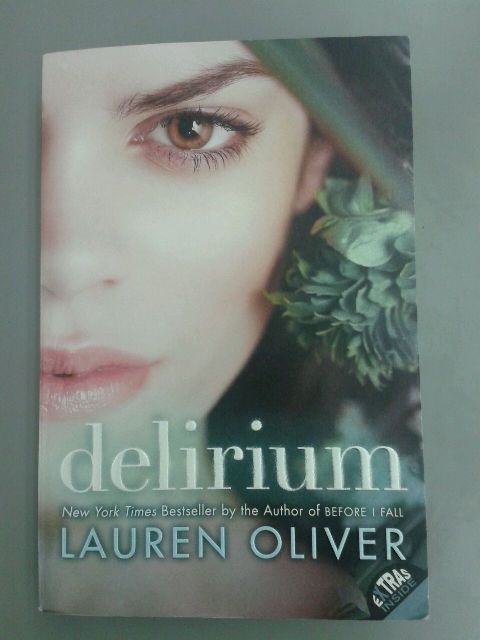“They say that the cure for Love will make me happy and safe forever. And I’ve always believed them. Until now. Now everything has changed. Now, I’d rather be infected with love for the tiniest sliver of a second than live a hundred years smothered by a lie.”
-Excerpt from the back cover of Delirium
From the first sentence, I was drawn into the futuristic world in which Delirium takes place: a dystopia where everything in your life is controlled by the Consortium, where every decision is made for you: your job, your spouse, everything. Every major city is surrounded by electrified fences with 24/7 supervision; are they keeping things out, or keeping you in? They claim that it’s for your own good, to protect you from the dangers such as the deadly disease, amor deliria nervosa, as well as the unknown surroundings, called the Wilds. Once you reach eighteen, you are administered the cure, which ensures that you will never be infected by the deliria.
Seventeen-year-old Lena has always believed in what she was taught: the disease is bad, and the cure is the only way to live a protected, happy life. She has watched her loved ones be torn apart by the disease and she desperately seeks the safety and happiness the cure will bring her. That all changes when she meets Alex: a mysterious boy that lives in her town. He shows Lena that the safe, comfortable life that she’s been living is all a lie.
Overall, I thought the first book of the Delirium trilogy was very good. But the whole time I was reading it, I was constantly reminded of the Matched trilogy by Ally Condie; both books are set in a dystopia where the government has created a society that appears to be “perfect” on the surface, but underneath the exterior, there is corruption, oppression and deceit. I thought that the concept behind Oliver’s novel was creative and interesting, but I felt like a lot of the plot mirrors the storylines of other dystopian novels like the Matched trilogy and The Uglies series by Scott Westerfeld. Although some of the plot was predictable, I was still thoroughly impressed by Oliver’s emotion and imagery. Throughout the novel, her writing appealed to almost every emotion: tear-jerking descriptions, horrifying images, and even a surprising twist I never saw coming. Even though it was not the best book I have ever read, I definitely enjoyed the book and I recommend others to read and enjoy it too.

